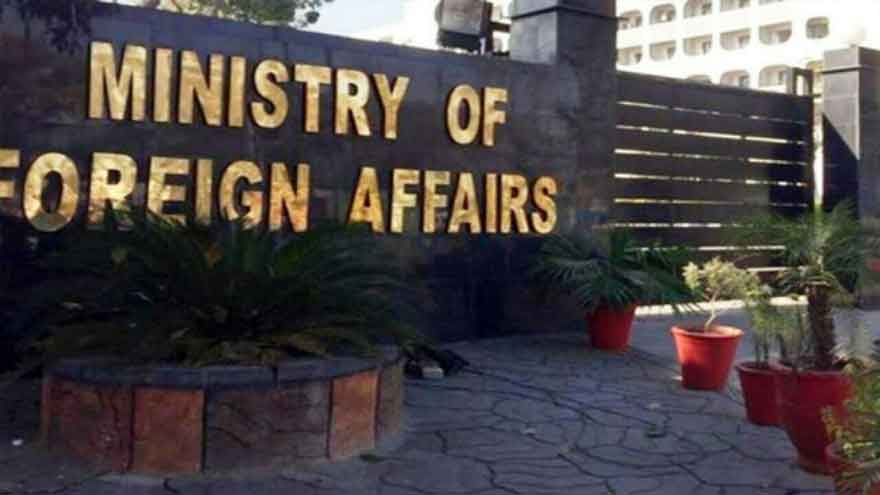Pakistan denies any plans for Khawaja Asif to meet Indian counterpart at SCO summit
Pakistan
The intense military exchange lasted 87 hours and came to an end with a US-brokered ceasefire
ISLAMABAD (Dunya News) – The Foreign Office on Wednesday dismissed speculation circulating in the media, confirming that no meeting is scheduled between Pakistan’s Defence Minister Khawaja Asif and his Indian counterpart Rajnath Singh during the Shanghai Cooperation Organisation (SCO) Defence Ministers’ Meeting being held in Qingdao, China.
In an official statement, the Foreign Office clarified that Khawaja Asif will attend the two-day SCO meeting beginning today, but no bilateral engagement with the Indian side is on the agenda.
This clarification came after Turkish media reports hinted at the possibility of the first direct interaction between defence officials of the two South Asian neighbours since their recent military confrontation. The reports noted that both ministers were attending the SCO summit alongside other high-level delegations, including from China and Russia.
Meanwhile, Pakistani government sources confirmed that Asif has already reached China for the event. Indian Defence Minister Rajnath Singh is also present at the forum, where member states will discuss regional security, counterterrorism cooperation, and military ties.
Read also: Pakistan's global stature on the rise: Khawaja Asif
Earlier this week, Pakistan’s National Security Advisor (NSA) Lt Gen Asim Malik participated in the 20th meeting of SCO Security Council Secretaries in Beijing. During his visit, the NSA met with Chinese leadership and delivered a strong speech highlighting Pakistan’s contributions to peace and regional stability. He reiterated Pakistan’s consistent stance on key global and regional security issues and called for enhanced cooperation among SCO member states.
The context behind these diplomatic engagements lies in the April military standoff between Pakistan and India, triggered after a deadly attack in Pahalgam, Indian Illegally Occupied Jammu and Kashmir (IIOJK), which killed 26 tourists. India accused Pakistan without evidence, sparking days of cross-border attacks.
Pakistan responded with Operation Bunyan-um-Marsoos claiming to have shot down six Indian fighter jets, including three Rafales, and multiple drones.
The intense military exchange lasted 87 hours and came to an end with a U.S.-brokered ceasefire on May 10.
Following the ceasefire, both Islamabad and New Delhi have engaged in global diplomatic outreach, aiming to shape international narratives and justify their respective actions during the escalation.



